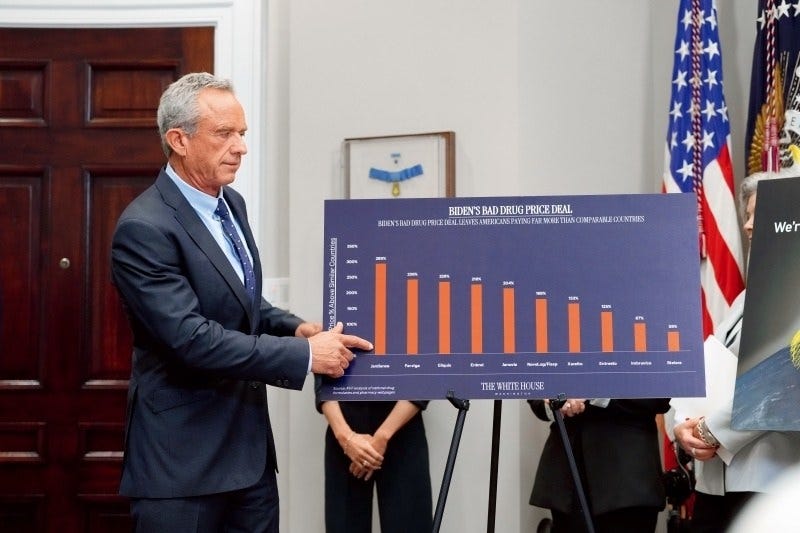How Trump's Proposed Price Cuts Could Hurt China's Innovative Drugmakers
Lower prices in the U.S. could hurt Chinese pharmaceutical startups’ fundraising prospects as many rely on future American sales to support their valuations
Robert F. Kennedy, U.S. secretary of health and human services, during a news conference in the Roosevelt Room of the White House in Washington, DC, on May 12. Photo: Bloomberg
On May 11, U.S. President Donald Trump announced on social media that he plans to slash prescription drug prices by 30% to 80%.
His plan employs a “most-favored-nation” pricing model that ties U.S. prices to the lowest paid by other developed countries. It also includes reforms to pharmacy benefit managers — the middlemen who negotiate drug prices among manufacturers, insurers and pharmacies — to increase transparency and reduce costs. Both moves have rattled the pharmaceutical industry.
Because of cost controls and reimbursement restrictions at home, many Chinese drugmakers rely on anticipated U.S. sales to support valuations and fundraising. Take BeiGene Ltd. and Hutchmed China Ltd. for example. Both have launched products in the U.S. that have sold well at much higher prices than they could fetch at home. One 80-milligram tablet of BeiGene’s lymphoma drug Brukinsa sells for $67.98,
Keep reading with a 7-day free trial
Subscribe to Caixin Global China Watch to keep reading this post and get 7 days of free access to the full post archives.




